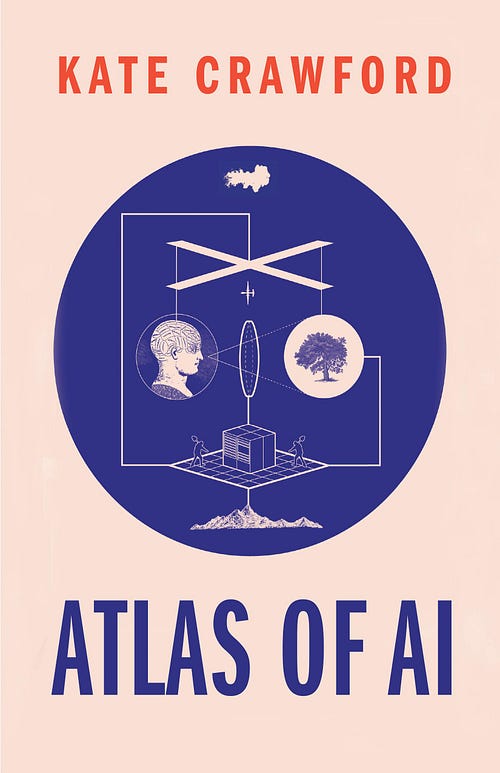Welcome to the third edition of Reading Roundup, a forum for ATX DSA members to share what they’ve been reading and how it’s informing their political education.
City in a Garden: Environmental Transformations and Racial Justice in Twentieth-century Austin, Texas by Andrew M. Busch

The story of racialized dispossession in Austin often seems to start and stop with the 1928 Master Plan and the paving of I-35. But what about 183, built to connect research labs in the northwest with industrial pollution sites in East Austin? Or the 1968 Fair Housing Ordinance, forced to a ballot referendum and voted down by the same margin as Prop B’s passage in May 2021?
City in a Garden fills these gaps in the history of Austin’s urban geography. Borrowing the phrase “possessive investment in whiteness” from American Studies scholar George Lipsitz, Busch reveals how 20th century power brokers shaped Austin’s landscape, emphasizing its natural amenities to attract the well-educated professionals that would anchor its knowledge economy. Constructing this white-collar oasis in the Jim Crow South meant hiding Black and Brown communities and the ecological cost of high technologies at its margins. As explicit discrimination fell out of favor and legality, liberal appeals to property rights and individual freedoms were invoked — both consciously and unconsciously — to maintain patterns of accumulation and centrifugal pressure on racial and economic boundaries.
By identifying the deep currents of local placemaking, City in a Garden inoculates against Austin’s mythos. Whether trying to comprehend the disappearance of working class neighborhoods, reckon with headquartering Tesla and the Army Futures Command, grasp the inequity of our public schools, or explain the gap between progressive values and material realities, Busch’s extensive research and iconoclastic narrative create context for how capital, racism, and environment have converged to build the city where we live, work, and organize.
— Mike C.
If They Come in the Morning … Voices of Resistance Edited by Angela Davis

Beginning with an epigraph by James Baldwin and forward by Julian Bond, this recent edition of a book first published in 1971 contains essays and writings in defense of Black and other working class political prisoners in the USA that modern radicals owe it to themselves to know. The essays are followed by letters of support for Angela Davis, then a political prisoner of the state of California, from the Women’s Secretariat of the African National Congress (long before the liberation of South Africa from apartheid), Coretta Scott King, Ralph Abernathy, George Lukacs, Herbert Marcuse, and other revolutionaries and central figures of the battle for freedom in the 1960s and 70s; The writing style is unusual to modern ears, but these essays were composed at a time of great upheaval in the United States. The movements for civil rights and Black power and the huge upsurge in labor strife provided a background that led many to believe they were on the verge of revolution. One take away is the important lesson that capitalism will never be overthrown by the ballot box alone. Angela Davis, George Jackson, Bobby Seale and the numerous contributors understand this.
Some of the most striking writing comes from Davis herself who, when accused of being a Communist, wholeheartedly embraced it. She was possibly the most popular political prisoner in the country at the time, but she consistently turns the conversation away from herself as an individual and toward the injustice of the “justice” system for Black and working-class Americans. Any who make significant gains organizing against capital will find themselves in Angela’s position. She is clear that struggle is not about her but the destruction of capitalism and the creation of society based in actual justice.
— Joshua F.
Splatter Capital by Mark Steven

Perfect for the Halloween season, Splatter Capital by Mark Steven provides a Marxist analysis of horror movies and what makes them such an interesting lens to view the world. Whether it’s the fears of deindustrialization in the Texas Chainsaw Massacre or the inability for the body to keep up with the demands of the market in Videodrome, the book really does a great job of helping you understand the anxieties of the times the films came out and what that means for us now. Some of the critiques found in this book didn’t always click for me. I thought occasionally he was really reaching to make a point, but I enjoyed it for the most part. Give it a read! Interrupt friends and family with selections about how Beetlejuice is actually about the death of the middle class! I give it four (red) stars out of five.
— Aaron J.
The Atlas of AI: Power, Politics, and the Planetary Costs of Artificial Intelligence by Kate Crawford

In The Atlas of AI, author Kate Crawford shows how Artificial Intelligence is neither artificial nor intelligent. While many people think of AI as conceptual, and even as objective, the author demonstrates the very tangible impacts and inherently political nature of AI.
In examining how AI is created and deployed, it becomes clear that AI is an extractive industry that relies on hidden exploitation. It pillages the planet and its natural resources, such as lithium-rich areas of Nevada and Latin America. It demands much of people working across the AI supply chain, from those extracting raw resources, to those working in highly-surveilled environments like Amazon warehouses, to those performing simple tasks at scale behind the scenes to make AI systems appear intelligent. And it entraps us all in a system of relentless data collection by capturing and monetizing our every action. After highlighting the exploitative nature of AI, Crawford then probes the very elements that serve as the foundation for our current AI landscape, questioning the limited, uncontextualized, and unconsented datasets feeding it; the deficient categorization models training it; and the erroneous science justifying it.
At a time when tech and AI are affecting our day to day lives in sometimes hidden yet increasing and invasive ways, it’s important to recognize tech and AI as inherently political with concrete detriments. The book nicely demonstrates how the tech industry and AI, operating within the broader capitalist system and mired by the same extractive mindset, not only thrive within capitalism, but also perpetuate it, to the detriment of people and planet.
— Cynthia M.
Birth Strike by Jenny Brown

I’m currently reading Birth Strike by Jenny Brown, which was recommended in the incredible ATX DSA Red Square discussion “SB 8 & Abortion Access in Texas.” It’s really helped me expand and reframe my thinking on the reasons behind governments’ restriction of reproductive freedom. Brown writes in the beginning, “This book argues that the effort to block birth control and abortion in the United States is neither fundamentally about religion nor about politicians pandering to a right-wing base, nor is it a result of prudery, nor is it to punish women for having sex. It is about the labor of bearing and rearing children: who will do it and who will pay for it.” She points out how “raising children is primarily portrayed as a lifestyle choice, like an expensive hobby or an exotic pet, instead of a needed job that parents take on at great individual expense and which the larger community, because it benefits, should support and assist.” The book has also helped me better understand social security — how a “pay-as-you-go” system works and why saying that it’s “going broke” is baloney — and it’s shown me the policies other countries have put forth to make it easier to have a family and effectively deal with low birth rate panic. Let’s do that here.
— Phoebe W.

